

| mathematical shenanigans 
(extended) phonetic alphabet | 
fitch style notation for katex | 
many-valued logic playground | 
miscellaneous | 
unicode
| |
intuitionistic and paraconsistent logics : a semi-addendum
august 18th, 2023it's not really an addendum, strictly speaking, since it mostly talks about more stuff than my previous post. however, what made me realise most of this is basically me realising a bunch of stuff neopalm talked about, especially their \ operator, which i'll write ⇸ instead, as it is more readable as such ; it is what we call abjunction, or nonimplication. coupled with his duality stuff which i'm not gonna explain, it made me reconsider most of what i imagined about negation, so... yeah. i'm still gonna try to make it understandable and relatable so it's actually somewhat readable tho lol.
in classical logic, we sort of assume two things whenever it deals with a given logical system : its consistency, and its completeness :
- consistency, formalised as (p→⊥)→(⊤⇸p), roughly translates as "no false proposition can ever be true" in the given logical system. in other words, it rejects propositions that be both true and false, also known as dialetheia, within the given logical system. most people consider that truth and falsity shouldn't happen at the same time, so that seems like a reasonable rejection.
- completeness, formalised as (p→⊥)∨(⊤→p), roughly translates as "all propositions have to at least be true or false" in the given logical system. note that it doesn't necessarily exclude propositions to be both true and false at once, unless the system be also consistent. it therefore rejects propositions that be neither true nor false, also known as independent propositions, within the given logical system.
- assume on one hand that p is true. by consistency, "no false proposition can ever be true", but bcs p is true, we have that p is false by modus tollens.
- assume on the other that p is false. yet by consistency, "no false proposition can ever be true", therefore p is true by modus ponens.
- assume on one hand that p ISN'T true. by completeness, "all propositions have to at least be true or false", but since p ISN'T true, we have that p is false by disjunctive syllogism.
- assume on the other hand that p ISN'T false. by completeness, "all propositions have to at least be true or false", but since p ISN'T false, p is true by disjunctive syllogism.
- on one hand, we have intuitionism, most compatible with incomplete systems, and therefore reject that all propositions have to be at least true or false, meaning intuitionism accepts propositions that are neither true nor false, or should we precise, neither provable nor refutable, at least in the ambient logical system.
in real life, intuitionism can be used for the logical analysis of opinions, which are concretely arational and therefore neither inherently true nor false, but can be assumed true by their upholders. the idea is to seek which opinions necessarily relate to other ones, rather than just statistically, and which opinions are completely independant from each other, meaning you could just as well uphold one, the other, both, or neither.
- on the other, we have dialetheism, and its infamous paraconsistent logic, most compatible with inconsistent systems, and rejects that false propositions can't also be true, meaning dialetheism accepts that propositions be true and false at once, or should we precise, both provable and refutable at once, at least in the ambient logical system. dialetheisme is simply the position that states such propositions even exist.
in real life, dialetheism is present everytime we represent ourselves and/or conceptualise something. we always fall slightly short of how the object "actually" is when we try to understand something, in the sense that we usually don't get exactly what we expect of it down to the decimal point, but that doesn't that a deviation, however small it may be, couldn't indicate we're right (at least in a practical sense), and certainly doesn't yield the sudden existence of santa claus (tongue-in-cheek reference to the principle of explosion). i'm obviously oversimplifying, but well...
- in incomplete logical systems, since classical logic forces every proposition from only treating propositions that at least true or false, it concretely rejects all propositions that are independant from the given logical system from the propositions that classical logic allows itself to treat. in other words, it's the formal version for "when you don't know, you have to shut up".
- however, for inconsistent logical systems, it gets a bit spicier. indeed, classical logic states that no false proposition can also be true in the ambient logical system. the problem is that, once there exists even just one proposition that is both provable and refutable, since we can quote any proven proposition anywhere we want in premisses and conclusions, it means we can entail this provable-refutable proposition from any other, and since refutability is inherited from consequent (what is entailed) to antecedent (what entails it), that means that every single proposition has to also be refutable, and therefore false.
technically, that should incite mathematicians to become dialetheists, at least much more than intuitionists. the issue is, though incomplete systems and intuitionistic logic usually keep some semblance of interest to the true/false distinction, or rather provable/refutable, although not a dichotomic distinction, inconsistent systems and paraconsistent logic make the very notion of falsity completely useless as it is rendered trivial. therefore, the main distinction and dichotomy becomes true/non-true, or rather, provable/unprovable. indeed, it's not bcs all propositions are false that we can't have some propositions not being true.
to understand this, we have to understand that, in order to refute a proposition p, it suffices to show it leads to a contradiction, of the form "q is both true and false". we generalise summarise this by writing it as "if p then ⊥", which often leads to the impression that ⊥ is some kind of conjunction of every contradictions, like "p1 is both true and false, and p2 is both true and false, and p3 is both true and false, and [...]". it's partly this interpretation that leads to believe in the principle of explosion, even though, if we look at classical rules of inference, it makes no sense. indeed, when we assume p, we can't generally deduce that both p AND some other arbitrary proposition q have to be true at once. what we can do, however, is that with p alone, we can deduce that at least p or q : we call this the disjunction introduction. therefore, since we write "p implies ⊥" everytime p implies some contradiction, we can instead see ⊥ as the disjunction of contradictions, ie "there's at least p1 is both true and false, OR p2 is both true and false, OR p3 is both true and false, OR [...]" (that, i thank neopalm for the idea, once again), and from this we can't really obtain the infamous principle of explosion. btw, yes, i know that "p is false" is literally "p implies ⊥", so it'd be a bit of a self-referential/recursive definition for ⊥, but eh, that's not too bad, i meant this bit to be more conceptual than concretely definitional.
but then, where's the issue ? well, we can have the hative impression that shifting from "refutability" to "unprovability" is a pretty benign move, but it'd be very wrong to think that. indeed, the standard way of refuting a proposition is by showing it yields a contradiction, but this isn't a valid argument for unprovability in paraconsistent logic, and believe me, these proofs called "of negation" and "by contradiction" are practically everywhere in mathematics. showing that we CAN'T derive a particular proposition from all the axioms and rules we admit in the ambient logical system, is much more difficult than refuting a proposition ; we'd have to find sorts of necessary, invariant properties, common to all propositions that are derivable from the accepted rules and premisses, for example. so yeah. quite a daunting task.
| |||||